Imagine waking up every morning with clear, glowing skin, free from the constant struggle of acne. It’s a confidence booster, a stress-reliever, and a game-changer for your overall well-being. In this ultimate guide to clear skin, you will discover an array of expert tips and effective strategies that will help you bid farewell to acne once and for all. From skincare routines tailored to your unique needs to lifestyle changes that promote healthy skin, this article will equip you with all the necessary tools to achieve the clear, blemish-free complexion you’ve always desired. Say goodbye to acne and hello to a radiant, confident you!
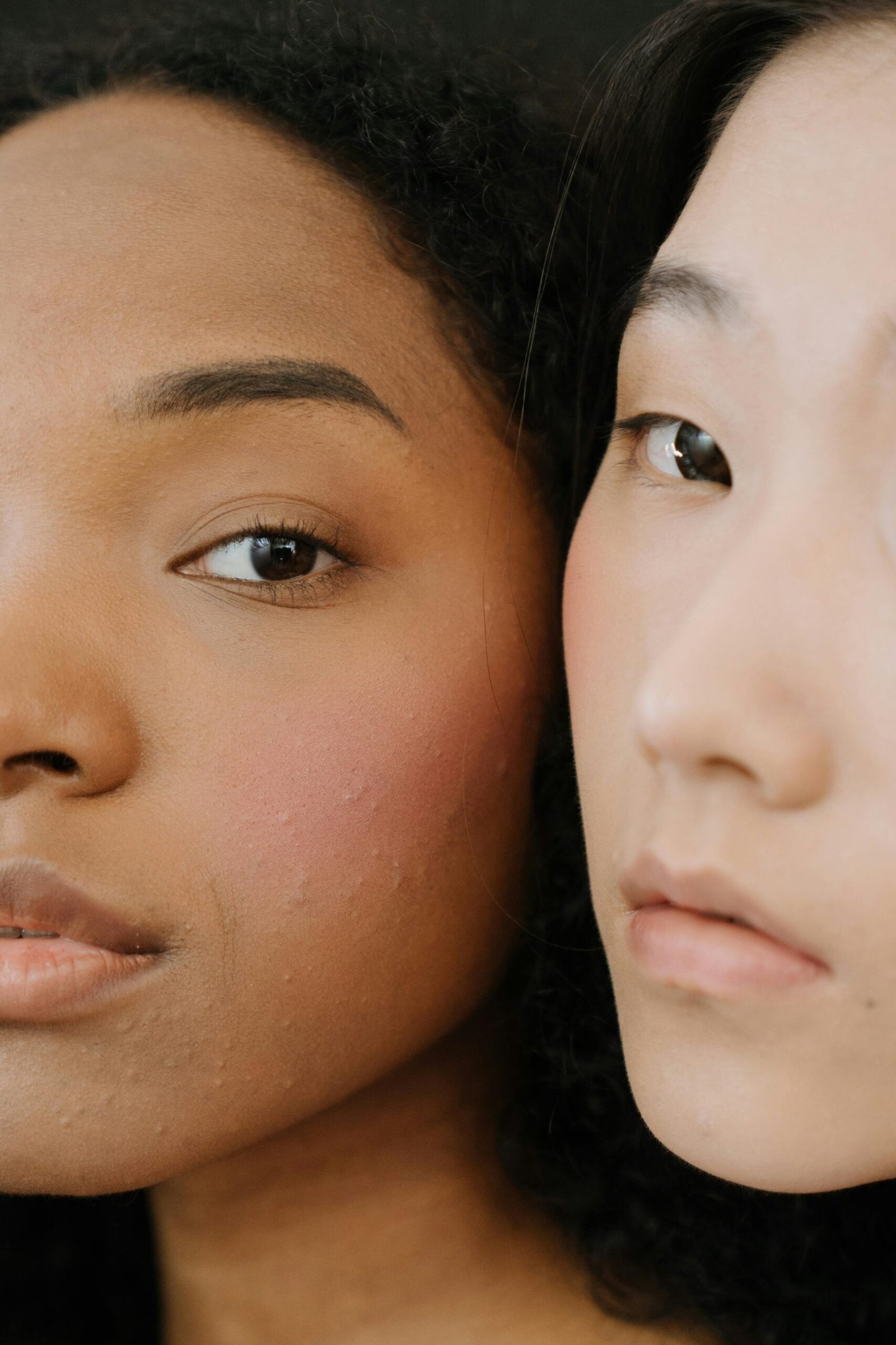
Understanding Acne
Acne is a common skin condition that affects many people, particularly teenagers and young adults. It is characterized by the presence of pimples, blackheads, whiteheads, and sometimes even cysts on the skin. Acne occurs when the hair follicles become clogged with oil and dead skin cells. While it is not a serious medical condition, it can be frustrating and impact one’s self-esteem. Understanding the causes and different types of acne can help in developing a suitable skincare routine to manage and prevent breakouts.
What is acne?
Acne is a skin condition that occurs when the hair follicles become clogged with oil and dead skin cells. It can manifest as whiteheads, blackheads, pimples, or even cysts. The most common areas where acne appears include the face, neck, back, chest, and shoulders. Acne is caused by a combination of factors, including hormonal changes, excessive oil production, dead skin cells, and bacterial activity on the skin.
Causes of acne
Acne can be caused by a variety of factors, including hormonal changes, excess oil production, and bacterial activity on the skin. During puberty, hormonal changes can lead to increased oil production, which can clog the hair follicles. This increased oil production, along with dead skin cells, creates an ideal environment for bacteria to thrive, leading to inflammation and the formation of acne. Other factors that can contribute to the development of acne include certain medications, stress, diet, and genetics.
Different types of acne
There are different types of acne that can vary in severity and appearance. Some of the common types of acne include:
-
Whiteheads: These are small, closed comedones that appear as white or flesh-colored bumps on the skin. They occur when the hair follicles are clogged with oil and dead skin cells.
-
Blackheads: Blackheads are open comedones that appear as small, dark bumps on the skin. They are caused by the oxidation of melanin, the pigment responsible for the color of the skin and hair.
-
Papules: Papules are small, red, raised bumps on the skin. They occur when the hair follicles become inflamed, leading to a red and tender appearance.
-
Pustules: Pustules are similar to papules but contain pus, which gives them their characteristic white or yellow appearance. They are often referred to as “pimples.”
-
Nodules: Nodules are large, painful, solid lesions that lie deep within the skin. They can be inflamed and do not contain pus. Nodules are often a more severe form of acne and can lead to scarring if not treated properly.
-
Cysts: Cysts are deep, painful lumps filled with pus. They are larger than nodules and can be easily felt beneath the skin. Cysts often leave behind scars and can take longer to heal compared to other types of acne.
Understanding the different types of acne can help in determining the most appropriate treatment and prevention methods.
Developing a Skincare Routine
Taking care of your skin is essential for managing and preventing acne breakouts. Developing a consistent skincare routine can help keep your skin clear and healthy. Here are some key steps to include in your skincare routine:
Cleansing
Cleansing your skin is the foundation of a good skincare routine. Use a gentle cleanser suited for your skin type to remove dirt, excess oil, and other impurities from your face. Avoid harsh scrubbing, as it can irritate the skin and worsen acne. Cleanse your face twice a day, morning and night, to keep your pores clear and reduce the risk of breakouts.
Exfoliating
Exfoliation is an essential step in removing dead skin cells and unclogging pores. Use a gentle exfoliator once or twice a week, depending on your skin’s sensitivity. Avoid harsh scrubs that can cause micro-tears in the skin, as they can aggravate acne. Exfoliating helps to smooth the skin’s texture, prevent clogged pores, and promote cell turnover.
Using toners
Toners are great for balancing the pH of your skin and removing any remaining impurities after cleansing. Look for toners that are alcohol-free and contain gentle ingredients such as witch hazel or rose water. Apply the toner using a cotton pad and gently swipe it across your face. Toners can help minimize the appearance of pores and prepare your skin for the next steps in your skincare routine.
Moisturizing
Moisturizing is crucial even if you have oily or acne-prone skin. Look for oil-free, non-comedogenic moisturizers that won’t clog your pores. Hydrating your skin helps maintain its natural moisture barrier, preventing excessive oil production. Apply moisturizer after cleansing and toning to keep your skin hydrated and balanced.
Applying sunscreen
Sun protection is essential for maintaining healthy skin and preventing acne scars. Look for a broad-spectrum sunscreen with at least SPF 30 and apply it generously to all exposed areas of your skin, including your face, neck, and chest. Sunscreen helps to prevent sunburn, premature aging, and even flare-ups of acne. Remember to reapply every two hours or as directed by the product instructions.
Using acne-fighting products
Incorporating acne-fighting products into your skincare routine can help target existing acne and prevent future breakouts. Look for products that contain ingredients such as benzoyl peroxide, salicylic acid, or tea tree oil. These ingredients can help reduce inflammation, unclog pores, and kill acne-causing bacteria. However, be mindful of using too many acne-fighting products at once, as they can cause dryness and irritation. Start with one product and gradually introduce others if needed.
Remember, consistency is key when it comes to skincare. Stick to your routine and give it time to show results. Be patient and gentle with your skin, avoiding harsh treatments or excessive scrubbing, as they can worsen acne symptoms.
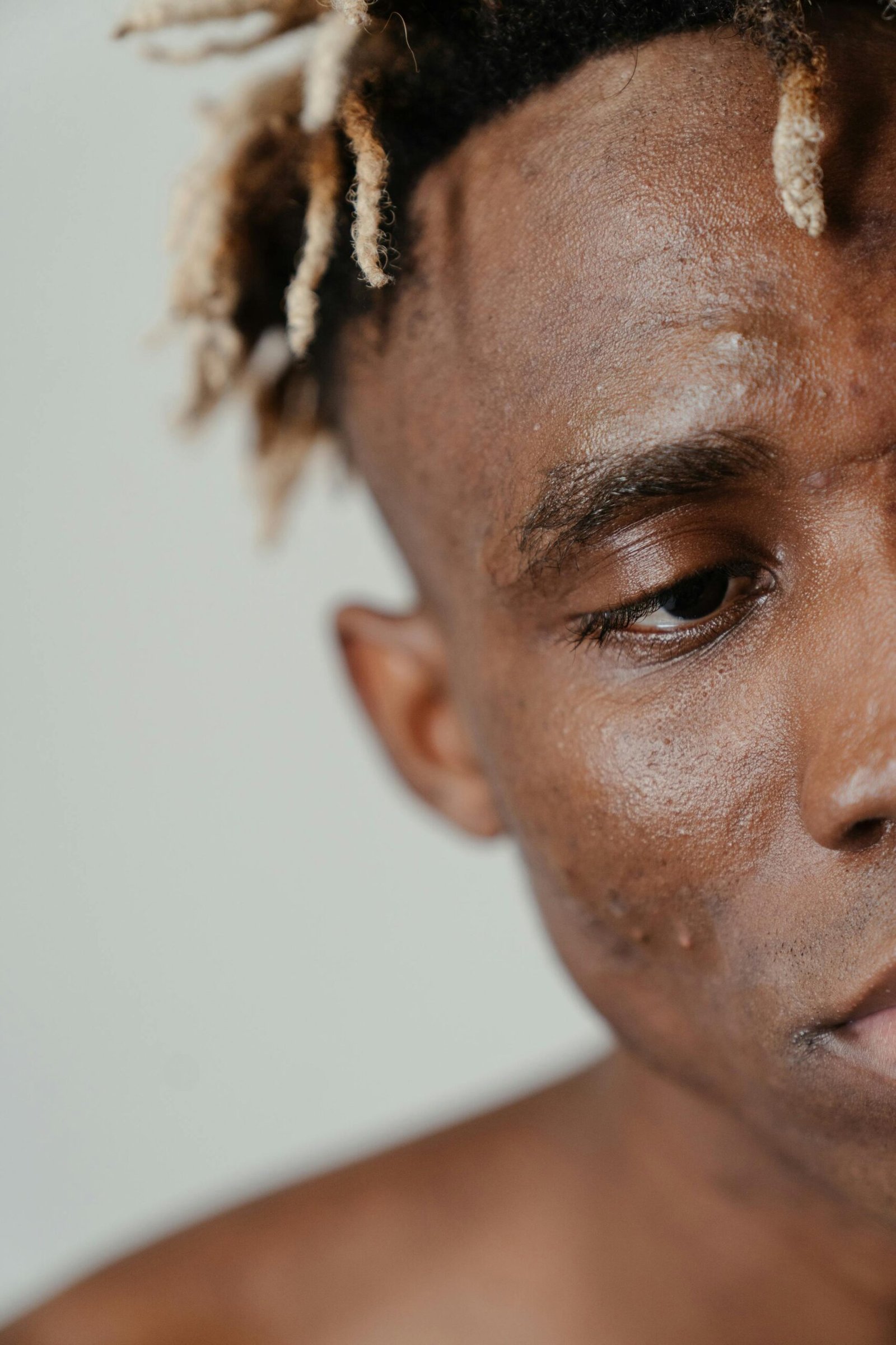
Diet and Lifestyle Changes
While skincare plays a crucial role in managing acne, it’s essential to address the underlying factors that can contribute to breakouts. Making certain diet and lifestyle changes can significantly improve the overall health of your skin. Here are some tips:
Eating a balanced diet
A balanced diet that includes plenty of fruits, vegetables, whole grains, and lean proteins can contribute to healthier skin. Foods rich in vitamins A, C, E, and zinc have been shown to benefit the skin. Incorporate foods like carrots, spinach, berries, almonds, and salmon into your diet for their skin-nourishing properties.
Avoiding trigger foods
Some individuals find that certain foods can trigger or worsen acne breakouts. While research on the link between diet and acne is limited, it may be beneficial to avoid high-glycemic foods (such as sugary snacks and processed carbohydrates) and dairy products, as they have been associated with acne in some studies. It’s important to listen to your body and make note of any foods that seem to have a direct impact on your skin.
Staying hydrated
Drinking an adequate amount of water is essential for maintaining healthy skin. Water helps flush out toxins from the body, keeping your skin hydrated and improving its overall appearance. Aim to drink at least 8 glasses of water per day or more if you engage in physical activity or live in a hot climate.
Getting regular exercise
Regular exercise can benefit your skin by improving blood circulation and reducing stress. Engaging in activities like jogging, swimming, or yoga can help promote a healthy glow and maintain overall skin health. Just remember to shower and cleanse your skin after exercising to remove any sweat and dirt that may have accumulated.
Managing stress levels
Stress can trigger hormonal changes that may contribute to acne breakouts. Find healthy ways to manage stress, such as practicing meditation, deep breathing exercises, or engaging in hobbies that bring you joy. Taking time for self-care can help reduce stress levels and promote clearer skin.
Getting enough sleep
Adequate sleep is essential for the overall health and repair of your body, including your skin. Lack of sleep can lead to increased stress levels and hormonal imbalances, both of which can contribute to acne. Aim for 7-9 hours of quality sleep per night to allow your body to rest and rejuvenate.
Making these dietary and lifestyle changes can support your skincare routine and help maintain clear, healthy skin.
Natural Remedies for Acne
In addition to a consistent skincare routine and lifestyle changes, natural remedies can provide added support in managing acne. Here are some natural ingredients that have been traditionally used for their acne-fighting properties:
Tea tree oil
Tea tree oil has antimicrobial and anti-inflammatory properties that can help reduce acne-related inflammation and kill acne-causing bacteria. Dilute tea tree oil with a carrier oil, such as coconut or jojoba oil, and apply it to acne-prone areas using a cotton swab.
Honey
Honey has antibacterial properties and can help soothe and heal acne-prone skin. Apply a thin layer of raw honey to your face and leave it on for 10-15 minutes before rinsing off with warm water. Regular use of honey can help reduce redness and inflammation.
Aloe vera
Aloe vera gel is known for its soothing and cooling properties, making it an excellent natural remedy for acne. Apply pure aloe vera gel to acne-prone areas and leave it on for 15-20 minutes before rinsing off. Aloe vera can help reduce inflammation and promote healing.
Apple cider vinegar
Apple cider vinegar has antimicrobial properties and can help balance the skin’s pH levels. Mix equal parts apple cider vinegar and water, and use a cotton ball to apply the mixture to acne-prone areas. Leave it on for a few minutes before rinsing off with water.
Green tea
Green tea is rich in antioxidants that can help reduce inflammation and fight acne-causing bacteria. Brew a cup of green tea and allow it to cool. Using a cotton ball, apply the green tea to your face or use it as a facial mist.
Turmeric
Turmeric has anti-inflammatory and antimicrobial properties that can help reduce acne-related inflammation and kill bacteria. Mix turmeric powder with a small amount of water or honey to form a paste, then apply it to acne-prone areas. Leave it on for 10-15 minutes before rinsing off.
Natural remedies can be a gentle and cost-effective addition to your acne-fighting routine. However, it’s essential to perform a patch test before applying any new natural ingredient to your skin to check for allergies or irritation.
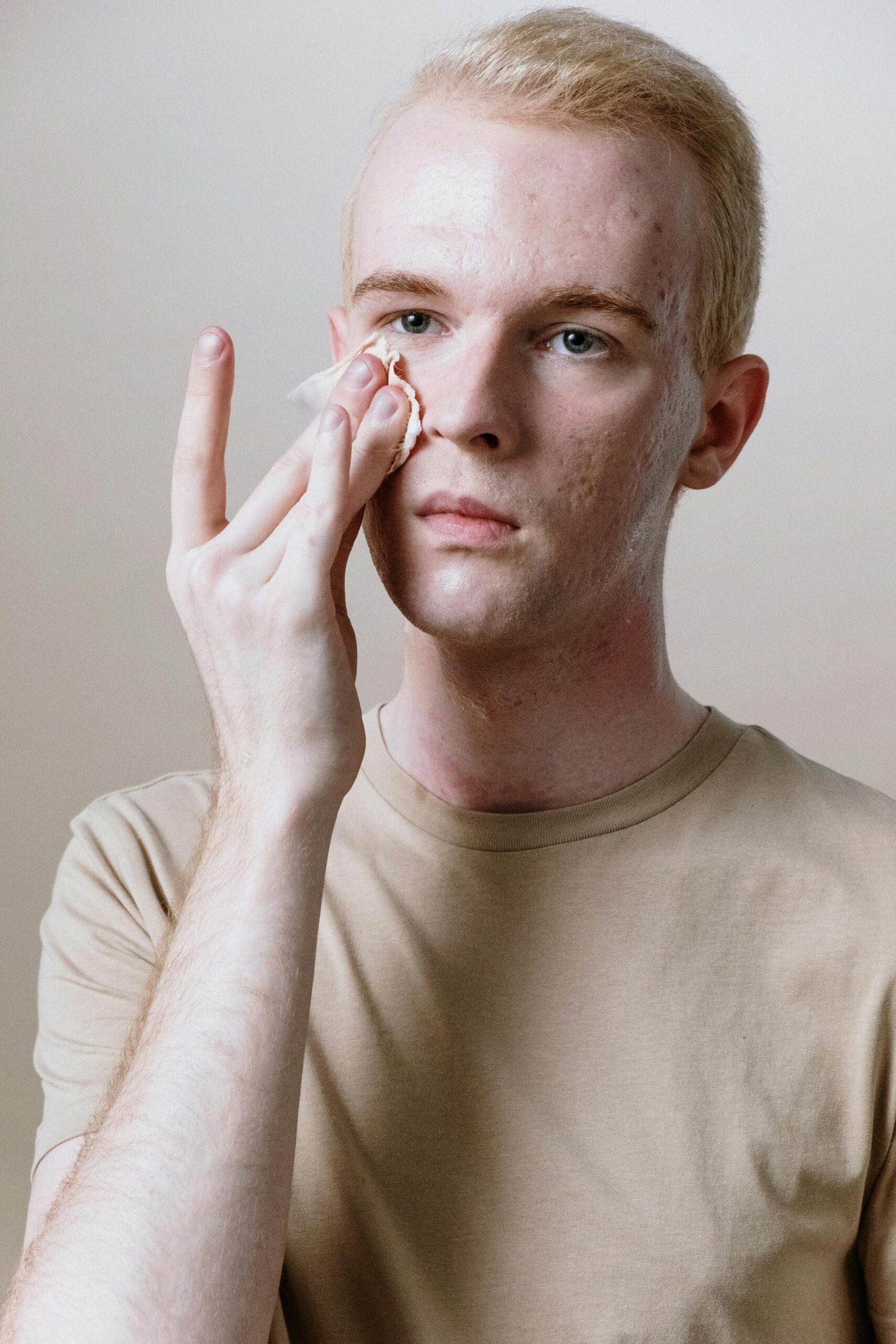
Professional Treatments for Acne
If over-the-counter products and natural remedies are not providing the desired results, it may be time to seek professional treatments for your acne. A dermatologist can recommend and perform various treatments tailored to your specific skin condition. Here are some professional treatments commonly utilized for acne:
Topical treatments
Dermatologists often prescribe topical treatments that contain stronger concentrations of acne-fighting ingredients than those available over-the-counter. These may include retinoids, antibiotics, or a combination of both. Topical treatments can help reduce inflammation, unclog pores, and regulate oil production.
Oral medications
In some cases, dermatologists may prescribe oral medications to help manage acne. Antibiotics, hormonal medications, and isotretinoin (commonly known as Accutane) are just a few examples of oral medications that can be effective in treating acne. These medications work by targeting the underlying causes of acne, such as bacteria, hormones, or excessive oil production.
Chemical peels
Chemical peels involve applying a solution to the skin, which causes the outermost layer to peel off. This process helps to unclog pores, exfoliate the skin, and reduce the appearance of acne scars. Chemical peels can be tailored to different skin types and severity levels of acne.
Microdermabrasion
Microdermabrasion is a non-invasive procedure that uses tiny crystals or a diamond-tipped wand to exfoliate the skin gently. It helps remove dead skin cells, unclog pores, and improve skin texture. Microdermabrasion can be effective in managing mild to moderate acne and reducing the appearance of acne scars.
Laser therapy
Laser therapy involves using concentrated beams of light to target and destroy acne-causing bacteria. It also helps reduce inflammation, stimulate collagen production, and improve overall skin texture. Laser therapy can be beneficial for individuals with moderate to severe acne or those who are prone to scarring.
Isotretinoin
Isotretinoin, commonly known as Accutane, is a potent oral medication used to treat severe acne. It works by reducing oil production, shrinking the sebaceous glands, and decreasing inflammation. Isotretinoin is typically prescribed for individuals with severe nodular or cystic acne that has not responded well to other treatments. It requires close monitoring and can have potential side effects, so it is important to consult with a dermatologist before considering this treatment option.
Professional treatments may require multiple sessions and have associated costs, so it’s essential to consult with a dermatologist to determine the most suitable treatment plan based on your specific needs and circumstances.
Preventing Acne Scars
Preventing acne scars is crucial to achieving and maintaining clear skin. Here are some steps to help minimize the risk of acne scarring:
Avoiding picking or popping pimples
While it may be tempting to pick or pop pimples, doing so can increase the risk of scarring. Picking at acne lesions can cause further inflammation and damage to the skin, leading to permanent scars. Resist the urge to touch or manipulate your acne and allow it to heal naturally.
Applying ice to inflamed acne
If you have inflamed acne, applying ice can help reduce swelling and redness. Wrap an ice cube or ice pack in a clean cloth and gently press it against the affected area for a few minutes. Ice helps to constrict blood vessels and reduce inflammation.
Using topical scar treatments
Numerous topical treatments are available that can help in fading acne scars over time. Look for products containing ingredients such as retinoids, vitamin C, or hydroquinone. These ingredients can help promote collagen production, reduce hyperpigmentation, and improve the texture of the skin. Consistent use of these treatments can gradually improve the appearance of acne scars.
Considering professional scar treatments
If you have deep or persistent acne scars, professional scar treatments may be beneficial. Dermatologists can recommend options such as chemical peels, microdermabrasion, microneedling, or laser resurfacing to target and reduce the appearance of scars. These treatments work by promoting collagen production, remodeling scar tissue, and improving skin texture and tone.
Protecting skin from sun damage
Exposure to the sun’s damaging UV rays can worsen the appearance of acne scars and lead to hyperpigmentation. Apply a broad-spectrum sunscreen with at least SPF 30 daily to protect your skin from the sun’s harmful effects. Sunscreen helps to prevent the darkening of scars and allows them to fade more quickly.
By following these preventive measures, you can reduce the likelihood of acne scars and help your skin heal more effectively.
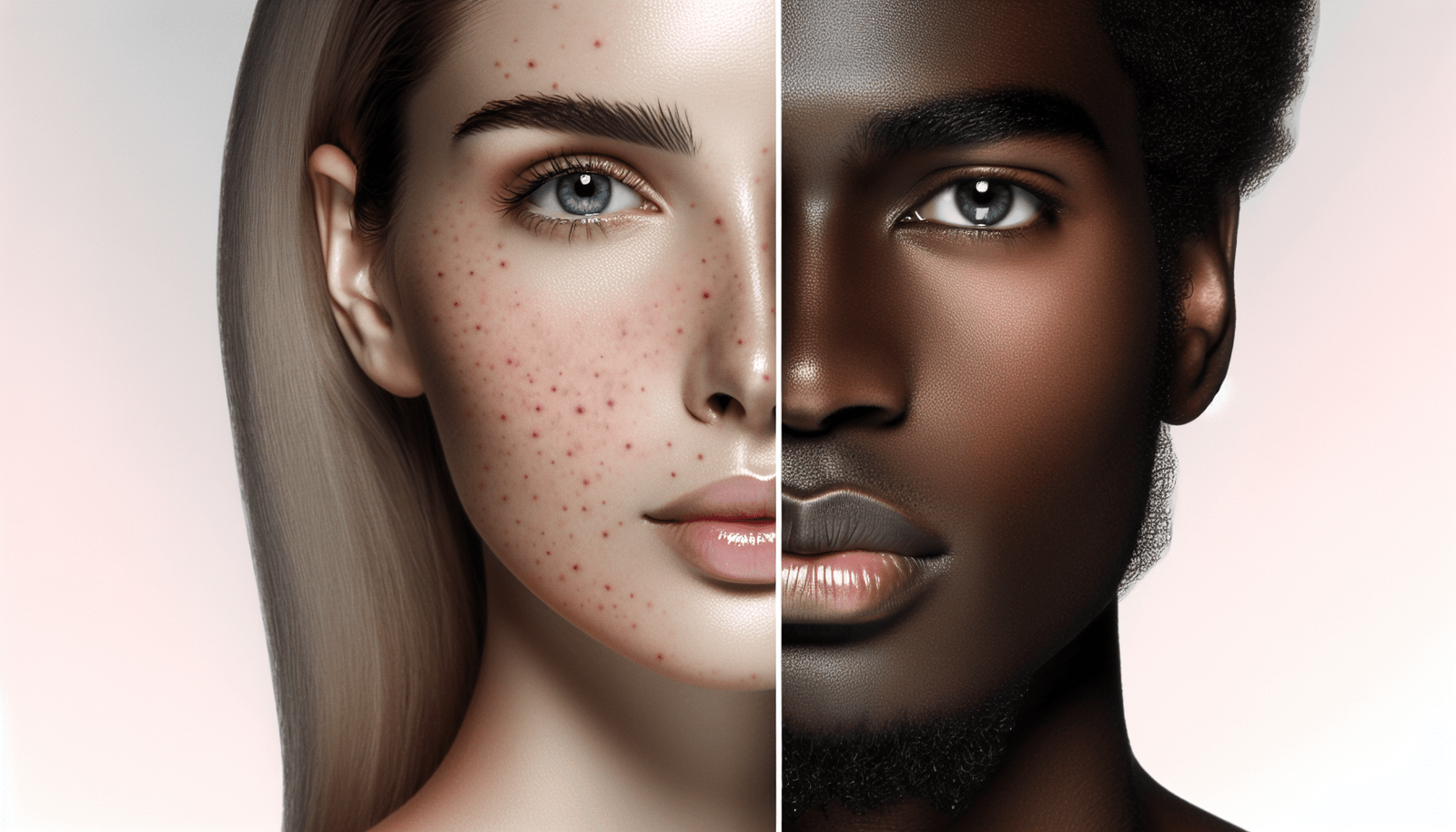
Makeup and Acne
Makeup can be a valuable tool in enhancing your natural beauty and boosting confidence, even when dealing with acne. Here are some tips for using makeup while managing acne:
Choosing non-comedogenic products
Non-comedogenic products are specially formulated not to clog pores, making them ideal for acne-prone skin. Look for foundations, concealers, and other makeup products that are oil-free and labeled as non-comedogenic. These products allow the skin to breathe and minimize the risk of pore blockage.
Using oil-free or water-based foundations
Foundations that are oil-free or water-based are less likely to contribute to the formation of acne. These formulas provide coverage without adding excess oil to the skin. Avoid heavy, creamy foundations that can clog pores and exacerbate acne breakouts.
Cleaning makeup brushes regularly
Makeup brushes and sponges can harbor bacteria that may worsen acne. Clean your makeup brushes regularly using a gentle cleanser or baby shampoo. This helps to remove any buildup of product, dirt, and bacteria, reducing the risk of transferring them to your skin.
Removing makeup before bed
Sleeping with makeup can clog pores and contribute to acne breakouts. Always make it a habit to remove your makeup before bed using a gentle cleanser or makeup remover. Double cleansing can be beneficial to ensure all traces of makeup are thoroughly removed from the skin.
Keeping skin clean and moisturized
Maintaining clean and moisturized skin is vital when wearing makeup. Cleanse your face thoroughly before applying makeup, ensuring there are no traces of dirt or excess oil. Moisturize your skin with a lightweight, non-comedogenic moisturizer to create a smooth base for makeup application. By keeping your skin clean and moisturized, you provide a healthier environment for your skin, even while wearing makeup.
While makeup can help conceal acne, it’s important to remember that skincare should always come first. Prioritize a consistent skincare routine and consider using makeup as an accessory rather than a solution for your acne.
Dealing with Hormonal Acne
Hormonal acne is caused by fluctuations in hormone levels, particularly androgens like testosterone. It often occurs in females during puberty, menstruation, pregnancy, and menopause. Here are some tips for managing hormonal acne:
Understanding hormonal acne
Hormonal acne is typically characterized by breakouts around the chin, jawline, and lower cheeks. It tends to be deep, cystic, and inflammatory in nature. It occurs when hormone levels fluctuate, leading to increased oil production and inflammation in the skin. Understanding the root cause of hormonal acne can help in developing an effective treatment strategy.
Hormonal treatments for acne
Consult with a dermatologist or healthcare professional to explore hormonal treatment options for managing acne. Oral contraceptives (birth control pills) can help regulate hormone levels and reduce acne breakouts. They work by inhibiting the production of androgens and promoting hormonal balance. Anti-androgen medications, such as spironolactone, can also be prescribed to block the effects of androgens on the skin.
Oral contraceptives
Some birth control pills contain synthetic hormones that can help regulate hormone levels and reduce acne. These pills can help balance estrogen and progesterone levels, which can decrease oil production and minimize the severity of acne breakouts. It is important to discuss the potential side effects and find the most suitable birth control option with a healthcare professional.
Anti-androgen medications
Anti-androgen medications, such as spironolactone, can be prescribed to manage hormonal acne. These medications work by blocking the effects of androgens on the skin, reducing oil production and inflammation. As with any medication, it is essential to consult with a healthcare professional to determine the appropriate dosage and potential side effects.
Managing hormonal acne often requires a combination of lifestyle changes, skincare routines, and hormonal treatments. Consulting with a dermatologist or healthcare professional can help determine the best approach for managing your specific hormonal acne concerns.
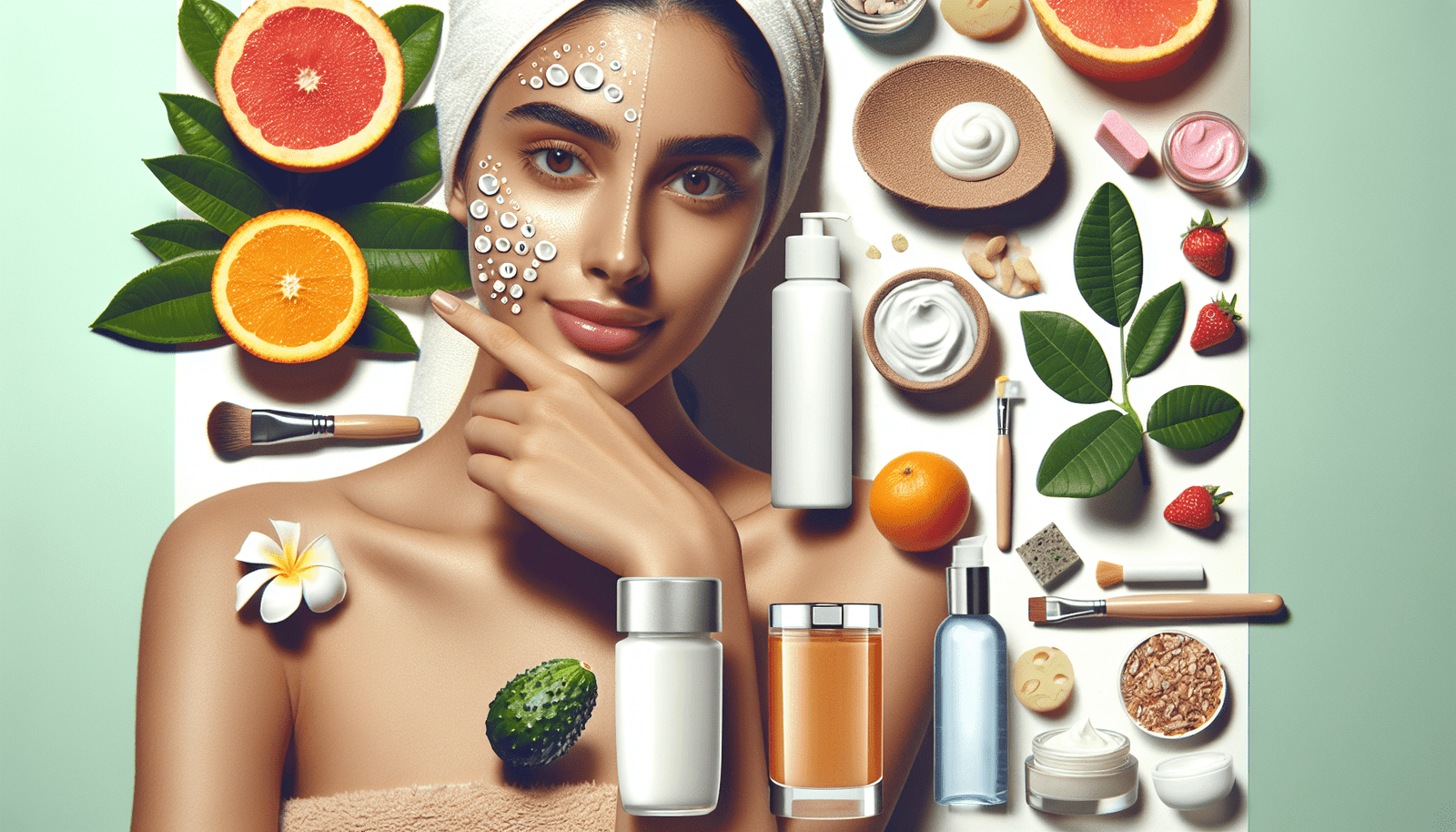
When to Seek Professional Help
While mild to moderate acne can often be managed with over-the-counter products and lifestyle changes, there are instances where it is important to seek professional help. Here are some indications that it may be time to consult with a dermatologist:
Persistent or severe acne
If your acne persists despite consistent use of over-the-counter products and natural remedies, it is a good idea to seek professional help. Dermatologists can assess the severity of your acne and recommend more targeted treatments to help manage and improve your skin condition.
Acne that is affecting self-esteem
Acne can have a significant impact on one’s self-esteem and overall well-being. If your acne is negatively affecting your confidence and mental health, it is worthwhile to consult with a dermatologist. They can provide guidance, support, and appropriate treatments to help improve your skin and boost your self-esteem.
Scarring or hyperpigmentation
If you have developed acne scars or hyperpigmentation as a result of previous breakouts, a dermatologist can recommend treatments to minimize their appearance. Professional scar treatments, such as laser therapy or chemical peels, can significantly improve the texture and tone of your skin, reducing the visibility of scars.
Failed attempts at home remedies
If you have tried various home remedies and over-the-counter treatments without seeing significant improvement in your acne, it may be time to consult with a dermatologist. They can assess your individual skin condition, identify any underlying factors, and provide targeted treatments that suit your needs.
Psychological impact of acne
Acne can have a profound psychological impact, affecting self-esteem, body image, and overall mental well-being. If your acne is causing emotional distress or affecting your daily life, seeking professional help from a dermatologist, counselor, or therapist can provide the necessary support and guidance.
Remember, you don’t have to face acne alone. Seeking professional help can provide you with the expertise and resources you need to effectively manage and improve your skin condition.
Maintaining Clear Skin
Maintaining clear skin is an ongoing process that requires consistent effort and attention. Here are some tips for keeping your skin healthy and free from acne:
Consistency with skincare routine
Maintain consistency with your daily skincare routine to ensure ongoing care for your skin. Cleanse, exfoliate, tone, moisturize, and protect your skin with sunscreen as part of your regular routine. Stick to the products and techniques that have been working well for you, but be open to adjustments if your skin’s needs change.
Identifying and avoiding triggers
Pay attention to any factors that may trigger your acne breakouts. This could include certain foods, skincare products, environmental factors, or lifestyle habits. By identifying and avoiding your personal triggers, you can help minimize the occurrence of breakouts.
Regularly washing pillowcases and towels
Pillowcases and towels can accumulate dirt, oil, and bacteria, which can transfer to your skin and potentially worsen acne. Aim to wash your pillowcases at least once a week and use a clean towel each time you wash your face or shower. This helps maintain cleanliness and reduce the risk of recontamination.
Avoiding touching the face
Touching your face can transfer bacteria and oils from your hands onto your skin, potentially leading to breakouts. It’s essential to avoid touching or picking at your face unnecessarily. Be mindful of this habit and try to keep your hands away from your face as much as possible.
Regularly changing hair products
Hair products, such as styling gels, mousses, and sprays, can contain ingredients that can clog pores and contribute to acne breakouts. If you notice breakouts along your hairline or forehead, consider switching to non-comedogenic or oil-free hair products. Be sure to keep your hair clean and avoid letting it come into contact with your face.
Regular check-ups with a dermatologist
Regular check-ups with a dermatologist can help ensure that your skin is consistently monitored and treated as needed. A dermatologist can provide professional advice, evaluate the effectiveness of your current routine, and recommend any necessary adjustments or treatments.
Maintaining clear skin is a continuous journey, and it’s normal to experience occasional breakouts. By staying consistent with your skincare routine, identifying triggers, and seeking professional guidance when needed, you can achieve and maintain healthy, clear skin.
In conclusion, getting rid of acne requires a comprehensive approach that combines understanding the condition, developing a suitable skincare routine, making diet and lifestyle changes, exploring natural remedies, considering professional treatments, preventing acne scars, managing makeup use, understanding hormonal acne, seeking professional help when necessary, and maintaining clear skin through consistent efforts. By following these tips and being patient with the process, you can work towards achieving the clear, healthy skin you desire.